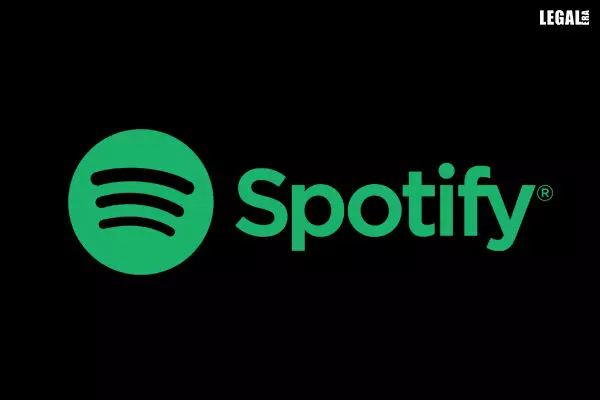- Home
- News
- Articles+
- Aerospace
- AI
- Agriculture
- Alternate Dispute Resolution
- Arbitration & Mediation
- Banking and Finance
- Bankruptcy
- Book Review
- Bribery & Corruption
- Commercial Litigation
- Competition Law
- Conference Reports
- Consumer Products
- Contract
- Corporate Governance
- Corporate Law
- Covid-19
- Cryptocurrency
- Cybersecurity
- Data Protection
- Defence
- Digital Economy
- E-commerce
- Employment Law
- Energy and Natural Resources
- Entertainment and Sports Law
- Environmental Law
- ESG
- FDI
- Food and Beverage
- Gaming
- Health Care
- IBC Diaries
- In Focus
- Inclusion & Diversity
- Insurance Law
- Intellectual Property
- International Law
- IP & Tech Era
- Know the Law
- Labour Laws
- Law & Policy and Regulation
- Litigation
- Litigation Funding
- Manufacturing
- Mergers & Acquisitions
- NFTs
- Privacy
- Private Equity
- Project Finance
- Real Estate
- Risk and Compliance
- Student Corner
- Take On Board
- Tax
- Technology Media and Telecom
- Tributes
- Viewpoint
- Zoom In
- Law Firms
- In-House
- Rankings
- E-Magazine
- Legal Era TV
- Events
- News
- Articles
- Aerospace
- AI
- Agriculture
- Alternate Dispute Resolution
- Arbitration & Mediation
- Banking and Finance
- Bankruptcy
- Book Review
- Bribery & Corruption
- Commercial Litigation
- Competition Law
- Conference Reports
- Consumer Products
- Contract
- Corporate Governance
- Corporate Law
- Covid-19
- Cryptocurrency
- Cybersecurity
- Data Protection
- Defence
- Digital Economy
- E-commerce
- Employment Law
- Energy and Natural Resources
- Entertainment and Sports Law
- Environmental Law
- ESG
- FDI
- Food and Beverage
- Gaming
- Health Care
- IBC Diaries
- In Focus
- Inclusion & Diversity
- Insurance Law
- Intellectual Property
- International Law
- IP & Tech Era
- Know the Law
- Labour Laws
- Law & Policy and Regulation
- Litigation
- Litigation Funding
- Manufacturing
- Mergers & Acquisitions
- NFTs
- Privacy
- Private Equity
- Project Finance
- Real Estate
- Risk and Compliance
- Student Corner
- Take On Board
- Tax
- Technology Media and Telecom
- Tributes
- Viewpoint
- Zoom In
- Law Firms
- In-House
- Rankings
- E-Magazine
- Legal Era TV
- Events
EU Fined $5.4 Million Against Spotify for Violating EU Data Rules

EU Fined $5.4 Million Against Spotify for Violating EU Data Rules
The Swedish Authority for Privacy Protection’s (IMY) has fined 58 million kronor ($5.4 million) against the music streaming giant Spotify for not properly informing users on how the data collected from them was being used.
The IMY said it had reviewed, “how Spotify handles customers right of access to their personal data. As a result of the shortcomings identified, IMY is imposing a fine of 58 million kronor on the company.”
The regulator noted that under the rules of the European Data Protection Act GDPR, users have a right to know what data a company has about an individual and how that data is being used.
IMY said that while Spotify did submit the data it had collected when requested by an individual, it said, that the company had not been sufficiently specific as to how that data was being used.
A group of Spotify users in the European Union filed a privacy complaint against the streaming giant in 2019. They contended that Spotify refused to reveal the extent of its personal data collection.
Over the past several years, the complaint has been bogged down in bureaucratic red tape, eventually falling under the jurisdiction of Sweden's privacy regulator. After a months-long investigation, the authorities ruled that Spotify had in fact violated the users’ privacy rights.
“Since the information provided by Spotify has been unclear, it has been difficult for individuals to understand how their personal data is processed and to check whether the processing of their personal data is lawful,” the IMY said.
It added that the shortcomings discovered are considered, overall, to be of low severity, motivating the size of the fine as a result of the Spotify's user count and revenue.
The EU has much stricter privacy regulations than the U.S. and many other governments. Several tech companies have faced substantial fines in recent years.
Meta, parent company of Facebook, has been fined more than $1.5 billion, whereas Amazon was slammed with a nearly $900 million fine, while Google had to pay $2.8 billion.



